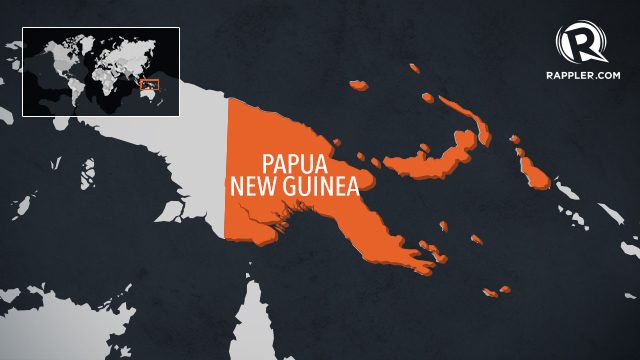SUMMARY
This is AI generated summarization, which may have errors. For context, always refer to the full article.

PORT MORESBY, Papua New Guinea (3RD UPDATE) – Police in Papua New Guinea opened fire on Wednesday, June 8, on students protesting against the prime minister, injuring almost 40 according to an international rights group which slammed the shooting as “disgraceful.”
Students have been locked in a month-long standoff with authorities and have been boycotting classes as they demand Prime Minister Peter O’Neill step aside over corruption allegations.
Witnesses said the clashes broke out in the capital Port Moresby as students prepared to march from the University of Papua New Guinea to parliament, where O’Neill was due to face a no-confidence vote.
Anti-corruption campaigner Noel Anjo Kolao, who helped organize the protest, said police had set up roadblocks and pointed their guns at students.
“Then they started shooting at them,” he told AFP by phone, saying he saw several injured students.
“We have two sets of laws in Papua New Guinea, one for the prime minister and one for ordinary citizens.”
Police Commissioner Gari Baki said in a statement that 23 people were hurt. Five of them were critically injured, according to the Port Moresby General Hospital and the Gerehu St John’s Hospital.
Reports in Australian media that four people had been killed were denied.
Amnesty International said it had information that 38 people were injured, including four in critical condition.
The shooting was “a disgraceful attack on the rights to freedom of peaceful assembly and expression”, the rights group said in a statement.
Human Rights Watch deputy Asia director Phil Robertson described the police shooting as “a truly terrible incident for which all security officials responsible for using lethal force unnecessarily need to be brought to justice”.
Baki said that when police told the students their march was illegal, they were pelted with stones before shots were fired in the air to disperse the crowd.
He added that as news circulated on social media, a large crowd armed with machetes, bows and arrows and home-made guns tried to burn down a police barracks but were thwarted.
Crime and lawlessness in the sprawling and poor Pacific nation, where many still live traditional subsistence lives in remote areas, is rampant. Cases of sorcery and cannibalism have both been reported in recent years.
‘Political agendas’
O’Neill has for two years been wanted for questioning by anti-corruption police but has refused to comply with a warrant for his arrest.
Police are investigating whether he authorised millions of dollars in illegal payments from the government to Paraka Lawyers, one of the Pacific nation’s largest law firms.
When the arrest warrant was issued in 2014, O’Neill sacked the PNG police commissioner, fired his attorney-general and suspended numerous other justice department and police officials.
He also moved to disband the anti-corruption watchdog.
O’Neill has denied the graft allegations, and last month published a lengthy letter responding to the students’ concerns which suggested the accusations were politically motivated.
He said on Wednesday that “a small group of students were violent, threw rocks at police and provoked a response that came in the form of tear gas and warning shots”.
“The factors that led to students being injured are yet to be ascertained,” O’Neill added, blaming the situation on his political opponents whom he referred to as “agitators”.
“The people behind these protests have political agendas,” he said.
Both Canberra and Washington issued warnings, with the US embassy in Port Moresby saying: “The situation is still volatile and could escalate at any time.”
Australian Foreign Minister Julie Bishop urged calm.
“We call on all sides for calm to de-escalate the tensions and certainly call on all sides to respect the peaceful and lawful right to protest,” she said. – Rappler.com
Add a comment
How does this make you feel?
There are no comments yet. Add your comment to start the conversation.